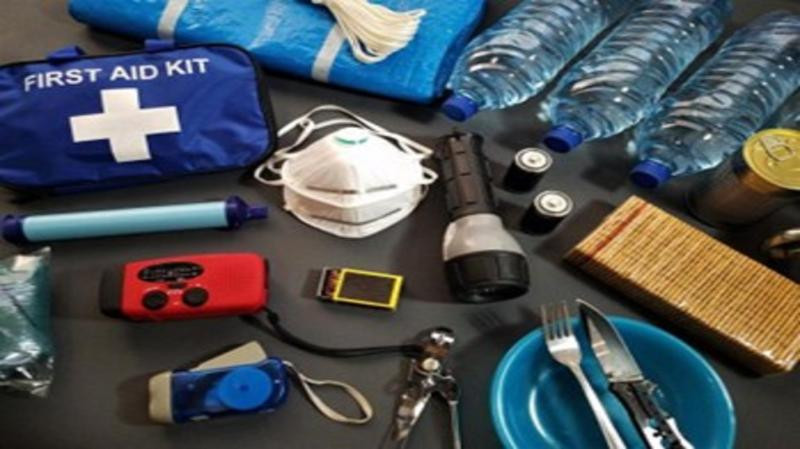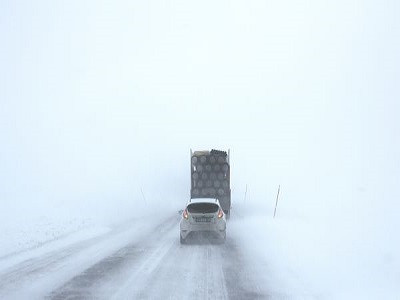Winter storms can bring severe conditions to Erie County, including heavy snow, ice, and high winds, significantly increasing the risk of accidents and health emergencies. Staying informed about the latest travel advisories, especially any Erie County Travel Ban Update Today, is crucial for your safety and the well-being of your family. This guide provides essential information on how to stay safe during winter storms and where to find the most current updates on travel bans in Erie County.
Understanding Erie County Travel Bans and Why They Matter
A travel ban in Erie County is implemented during severe winter weather to protect public safety. These bans restrict or prohibit travel on roads, making it essential to stay updated on the latest Erie County travel ban update today. Travel bans are put in place to:
- Reduce Accidents: Winter storms drastically increase the risk of car accidents due to icy roads and poor visibility. Bans keep unnecessary vehicles off the roads, allowing emergency services to operate more effectively.
- Ensure Road Clearance: Travel bans allow road crews to clear snow and ice more quickly and safely without the obstruction of traffic.
- Protect Vulnerable Individuals: By limiting travel, bans help prevent people from getting stranded in dangerous conditions, reducing the risk of hypothermia, frostbite, and other cold-related illnesses.
Always check for the latest Erie County travel ban update today from official sources before traveling. Local news channels, the Ready Erie App, and the BUFFALERT system are your best resources for real-time information.
Essential Winter Storm Safety Measures
Whether or not there is an Erie County travel ban update today, being prepared for winter storms is vital. Here’s how to protect yourself and your loved ones:
Seek Shelter Immediately
If a winter storm warning is issued for Erie County, the most important step is to find safe shelter right away.
- Locate Warming Centers: If you need shelter, call 2-1-1 to find the nearest warming center in Erie County. These centers provide a safe, warm place during extreme cold.
Stay Off the Roads
- Adhere to Travel Bans: If there is an Erie County travel ban update today indicating a ban is in effect, do not travel. Stay home and avoid driving unless it is an absolute emergency.
- If Travel is Necessary: If you must drive, check road conditions beforehand and ensure your vehicle is winter-ready with a full gas tank and an emergency kit.
Home Safety and Preparedness
- Clear Vents: Ensure exterior exhaust and furnace vents are clear of snow and ice to prevent carbon monoxide buildup.
- Stay Warm Indoors: Remain indoors and have warm clothing readily available, including layers, hats, and gloves.
- Bring Pets Inside: Protect your pets from the cold by bringing them indoors.
- Monitor Emergency Alerts: Stay tuned to emergency information and alerts through radio, TV, and your mobile devices.
Prepare for Power Outages
- Locate Utilities: Know the location of electrical boxes and water shut-off valves in your home.
- Generator Safety: If using a generator, operate it OUTSIDE only and away from windows and doors to prevent carbon monoxide poisoning.
- Emergency Supplies: Prepare for potential power outages by having flashlights, batteries, and non-perishable food on hand.
Health and Well-being During Winter Storms
- Recognize Cold-Related Illnesses: Be aware of the signs of hypothermia and frostbite. Seek medical attention immediately if you or someone you know exhibits these symptoms.
- Check on Neighbors: Especially check on elderly neighbors or those with mobility issues who may need assistance during the storm.
Stay Informed with Erie County Emergency Alerts
Staying informed is key to weathering winter storms safely in Erie County. Utilize these resources for the latest information, including any Erie County travel ban update today:
- Ready Erie App: Download the free Ready Erie App to receive notifications, find emergency shelters, view evacuation maps, and create a personalized emergency plan.
- BUFFALERT System: Sign up for the City of Buffalo BUFFALERT System for emergency alerts and severe weather warnings specific to your area.
- Local Media: Listen to commercial radio and television stations for the most current winter weather conditions and travel advisories.
Build Essential Emergency Kits
Preparing emergency kits for your home and car is a proactive step in ensuring safety during winter storms, especially if an Erie County travel ban update today restricts movement.
Home Emergency Kit
- Stock Essential Supplies: Build an emergency kit for your home that includes non-perishable food, water, medications, first aid supplies, warm clothing, a portable radio, flashlights, and extra batteries.
- Food Pantry: Build your food pantry and consider downloading the Emergency Eats Cookbook for meal ideas during power outages.
- Neighbor Network: Exchange contact information with your neighbors to check on each other and offer assistance if needed.
 Emergency home kit
Emergency home kit
Car Emergency Kit
- Vehicle Readiness: Keep your gas tank full and ensure your tires have good tread for winter driving conditions.
- Essential Car Kit: Build an emergency kit for your car containing items like jumper cables, a blanket, a flashlight, a first-aid kit, and snacks.
- Driving Safety: Avoid driving through flooded areas and be cautious of downed power lines. If a power line falls on your car, stay inside until professional help arrives.
 Emergency car kit
Emergency car kit
Health Risks During Extreme Cold
Extreme winter cold poses significant health risks. Be aware of the dangers and take precautions to protect yourself.
Carbon Monoxide Poisoning
Carbon monoxide (CO) is a silent killer. It’s an odorless, colorless gas produced by burning fuel.
- CO Sources: CO can come from cars, trucks, generators, stoves, and furnaces. Ensure proper ventilation when using fuel-burning appliances.
- CO Poisoning Symptoms: Symptoms often mimic the flu and include headache, dizziness, weakness, upset stomach, vomiting, chest pain, and confusion. If you suspect CO poisoning, get to fresh air immediately and seek medical help.
Protecting Vulnerable Groups
Winter storms can be particularly challenging for certain groups:
-
Seniors: Check on elderly individuals who may be more susceptible to cold-related illnesses.
-
Pets: Keep pets indoors and ensure they have warm shelter. Contact your veterinarian for advice on pet safety during winter.
-
Homeless: Be aware of resources and shelters available for the homeless population during severe weather.
-
People with Disabilities and Chronic Diseases: Ensure those with disabilities and chronic conditions have the necessary support and resources to stay safe and healthy during winter storms.
Conclusion: Stay Safe and Informed in Erie County
Winter storms in Erie County require preparedness and vigilance. Always prioritize your safety and stay informed about the latest weather updates and travel advisories, including the Erie County travel ban update today. By taking proactive steps to prepare your home, car, and family, and by staying informed through official channels, you can significantly reduce the risks associated with winter storms and ensure your well-being during severe weather events. Remember to check official Erie County sources regularly for the most up-to-date information and stay safe.
